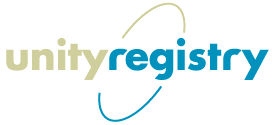
 |
C41. Do you propose to seek to qualify to receive any funds from this endowment?No. The partners in Unity Registry are for profit companies with extensive experience in providing services to non-profits and similar institutions that constitute a significant portion of .org registrants. We do not wish to receive funds from the endowment. We further believe that foregoing the $5 million endowment, and an award to a for profit company like Unity Registry will bring several substantial advantages to ICANN and is in the best interests of the continued future management of the .org gTLD. We have structured our proposal to minimize any ambiguities or potential burdens on ICANN staff resources, because we believe that the award of the endowment raises several issues. First, an award to a non-profit will create difficulties for the ICANN Board. Either it would have to reach a judgment regarding the relative merits of the charitable or social purposes of the awardee, which would confront the Board with subjective and controversial questions regarding the desirability of various competing social objectives; or it would have to remain indifferent to the charitable purpose of the non-profit (eliminating any special "terms" for the endowment, and instead preferring the bid that promises the greatest likelihood of a smooth transition and adequate services for all .org registrants), thereby rendering its preference for a non-profit over a for profit difficult to defend. A for profit company like Unity Registry will be more likely than any non-profit to focus primarily on serving .org registrants by assuring stability and developing value added services that are likely to be well received in the marketplace rather than serving the particular social agenda toward which the non-profit is targeted or to which the non-profit might devote funds derived from operations or from the endowment. In our extensive experience we have found that non-profit companies are more concerned about the quality and value of services they receive than the particular status - profit or non-profit - of those who provide such services. By clearly identifying itself as a for-profit enterprise which is serving the interests of the noncommercial Internet using community, Unity Registry can then put in place mechanisms to ensure that this is achieved (see Section C35). If an award were made to a non-profit based on its "qualifications" for the endowment, the ICANN Board will have to make judgments regarding the non-profit status of the awardee (not a simple judgment in an international context) and continually monitor compliance with the terms of the endowment. If the awardee has contractual relationships with for profit service providers, this will create a continuing potential for controversy regarding diversion of funds to unqualified purposes and/or indirect "control" over the operations of the non-profit awardee by its suppliers. This monitoring exercise would create a continuing burden on ICANN staff and could well lead ICANN into unnecessary and counterproductive controversy. We further contend that a for profit company like Unity Registry that is not dependent upon a one time subsidy of its operations costs will be far more likely to have developed and to execute a sound, economically viable and fundable business plan for the long term. Lastly, establishment of the endowment will raise a range of questions regarding who should administer the funds, on what schedule they should be disbursed, what reports should be required from the awardee to assure continuing "qualification", what showings must be made to demonstrate that operating costs have been incurred and are reasonable, and so forth. This debate, which our proposal avoids, may distract the successful bidder from concentrating fully on the key task of managing the Registry Function in the interests of all registrants and the wider Internet community. Although the availability of the $5 million might conceivably be argued to have the potential to reduce registration costs for .org registrants, that potential is far less important than maximizing the prospects for a smooth transition, stable ongoing operation and the development of value added services designed to succeed on their merits in the marketplace rather than to fulfill some particular charitable agenda. Most .org registrants, including non-profits, spend far more in developing their web sites and otherwise investing in the online information or services they make available via their .org registration than they do on the registration itself. The endowment payment would not fundamentally alter the need to develop a sound business plan for the registry -- instead, it might well lead those without extensive business experience to propose to enter the business of providing registry services on an unsound basis. In short, despite the understandable instincts underlying ICANN's decision
to seek the contractual provision that contemplates creation of the endowment,
we believe an award to an applicant which does not seek to qualify for
the endowment is to be preferred. Unity Registry is a for profit company
with extensive experience understanding and serving the needs of non-profits.
We have developed a sound business plan to provide exceptional services
to all .org registrants and to assure a smooth transition and sound continuing
operations which over the long term, will best serve .org registrants
and the ICANN community. |